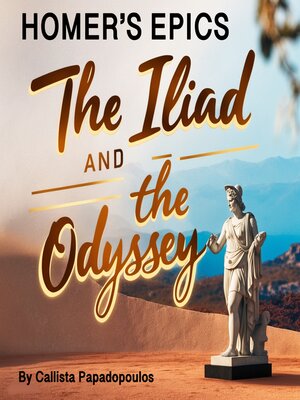
Sign up to save your library
With an OverDrive account, you can save your favorite libraries for at-a-glance information about availability. Find out more about OverDrive accounts.
Find this title in Libby, the library reading app by OverDrive.



Search for a digital library with this title
Title found at these libraries:
| Library Name | Distance |
|---|---|
| Loading... |
This audiobook is narrated by a digital voice.
The figure of Homer stands at the dawn of Western literature like a colossus, his two great epics, the Iliad and the Odyssey, representing not only the earliest complete literary works to survive from ancient Greece but the foundational texts that would establish the genres, themes, and artistic techniques that would dominate European literature for millennia. Yet the very greatness of these achievements has generated one of the most enduring scholarly debates in literary history, as generations of scholars have grappled with fundamental questions about the identity of their author, the process of their composition, and the relationship between oral tradition and written literature that these works seem to embody.
The world that produced Homer's epics was a civilization in transition, emerging from the darkness of the Greek Dark Ages into the renewed prosperity and cultural confidence that would characterize the Archaic period. The collapse of Mycenaean palace civilization around 1200 BCE had destroyed not only political and economic structures but also the Linear B writing system that had preserved administrative records, creating a gap of several centuries during which Greek culture was transmitted entirely through oral tradition. When literacy returned to Greece through adaptation of the Phoenician alphabet around 750 BCE, it encountered a rich oral poetic tradition that had preserved, transformed, and elaborated the heroic stories of the Bronze Age past.







